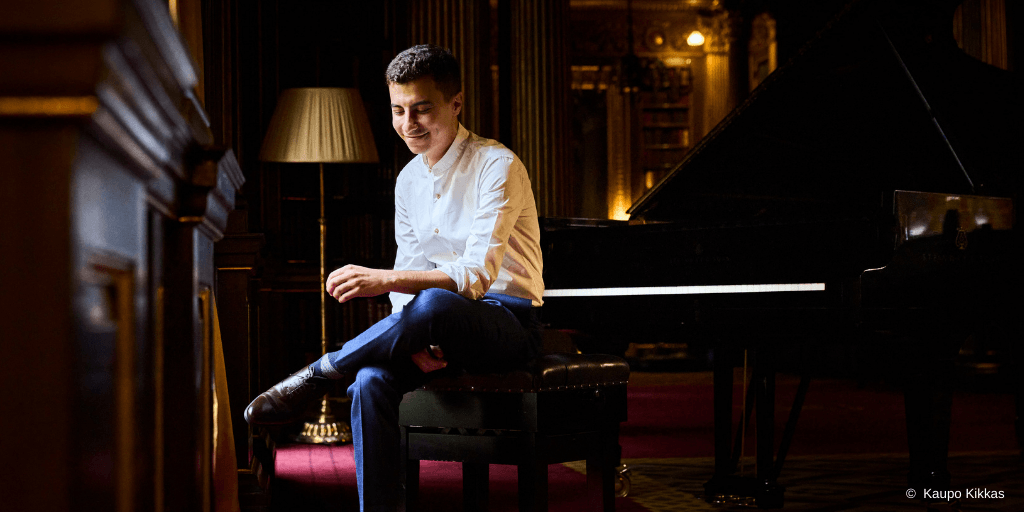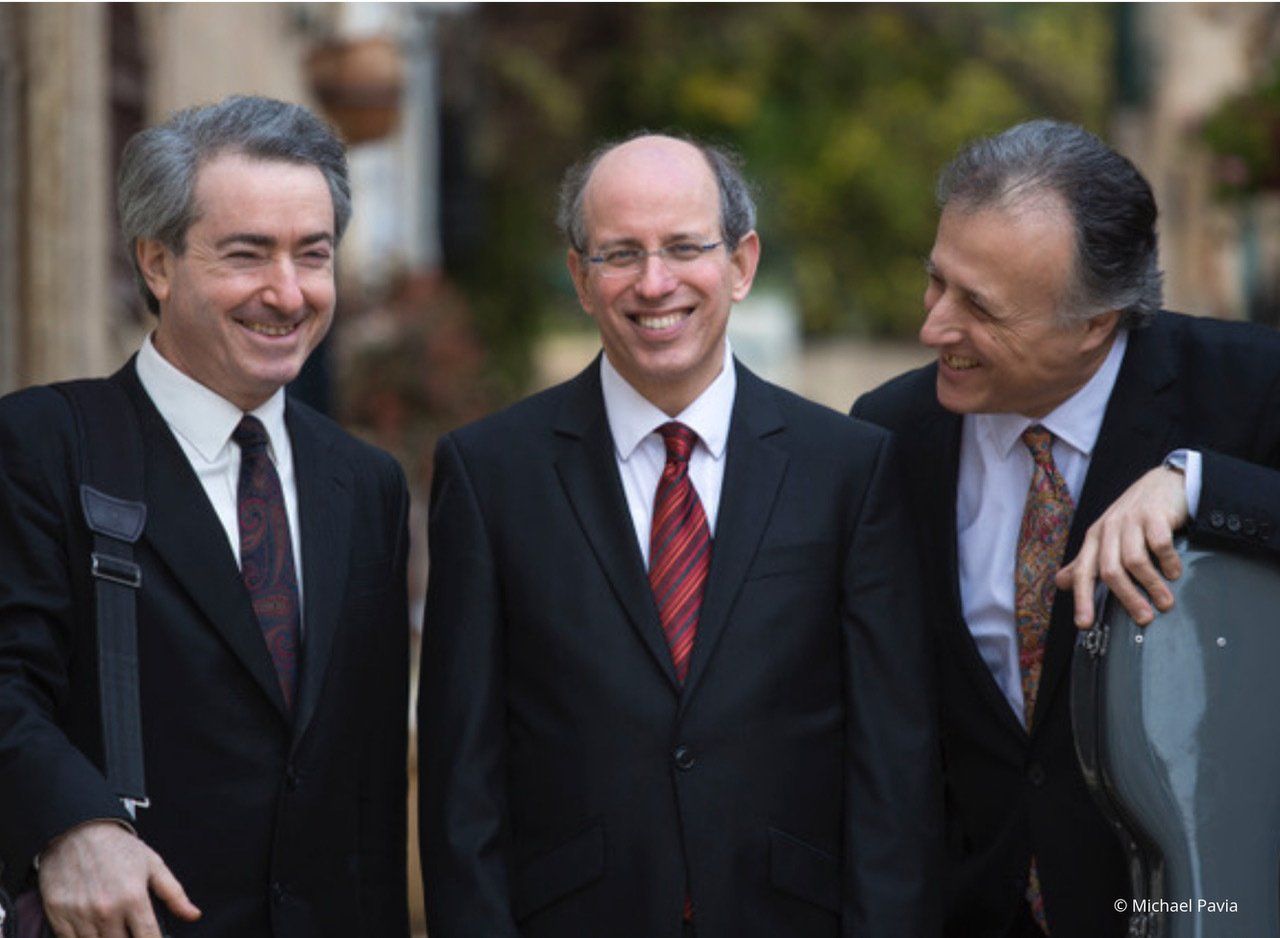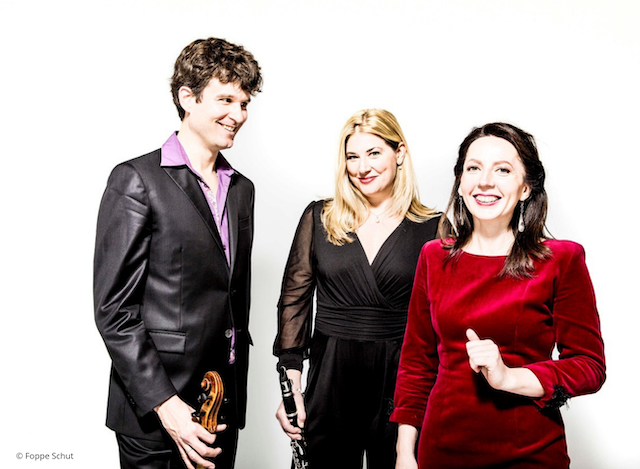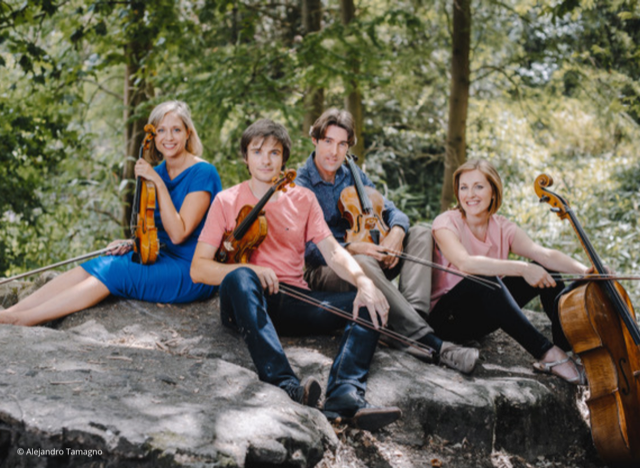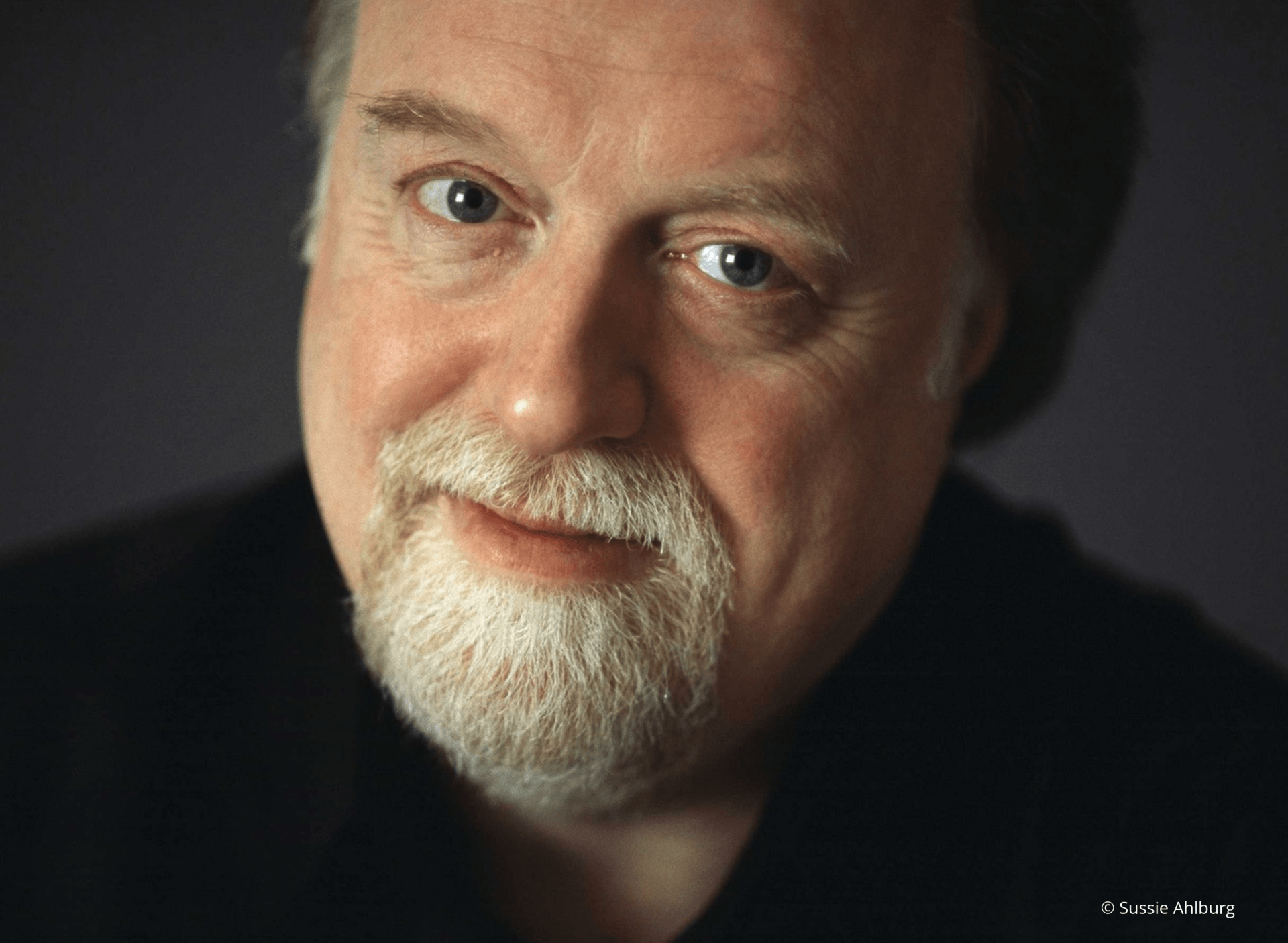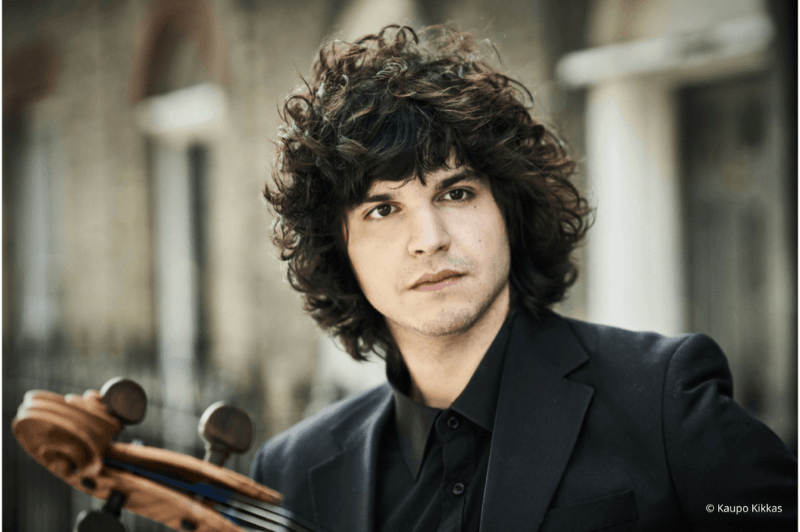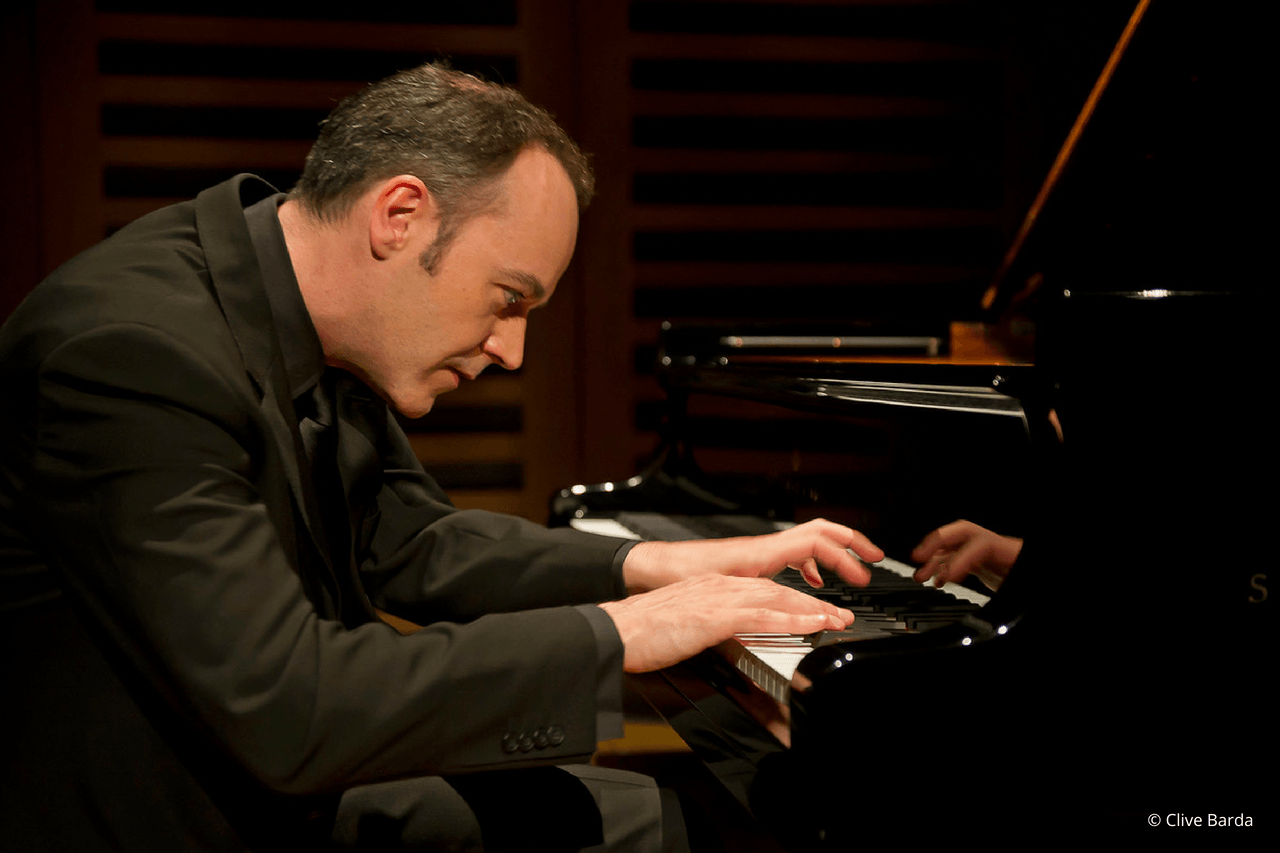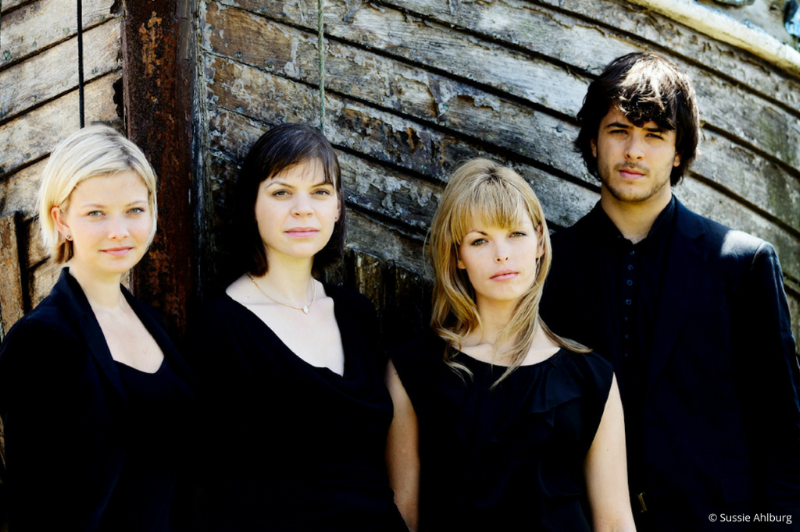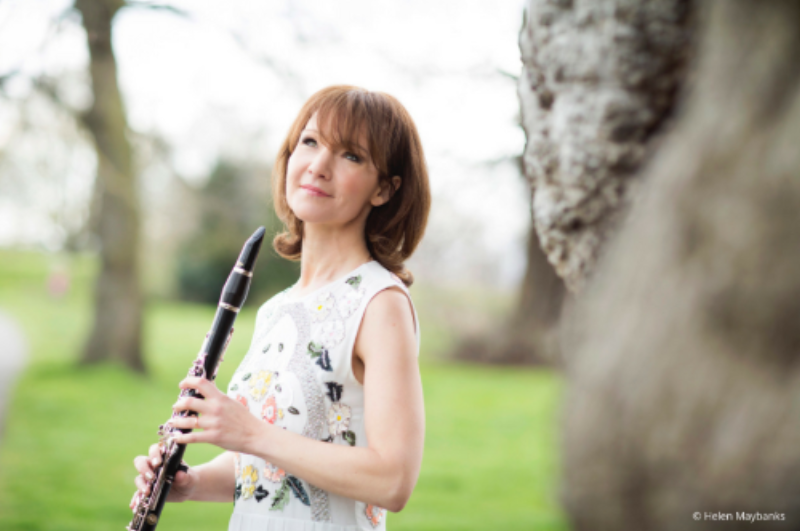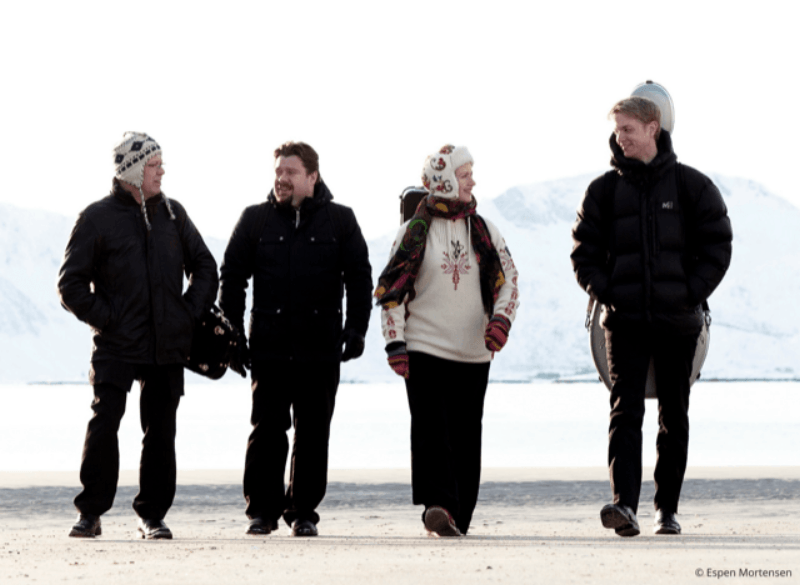Gitarrissima will play for our Christmas concert!
Thursday 12th December 2019 at 7.30pm
The guitarists from Bulgaria, Hungary, Russia, Japan and Austria have been enchanting international audiences with their sensitive musical interplay and virtuoso performances. In 2014, they were prize winners at the international competition for chamber music with guitars in Aschaffenburg, Germany. They had excited the professional jury and the audience.
The quintet consists of an octave guitar (Dimitrova), three concert guitars (Mihalovics, Ovchinnikova and Kaisho) and an acoustic bass guitar (Smejkal). They create an original sound, giving a new dimension to popular classical works and less well known compositions.
Find out more about Gitarrissima
and watch a video here.
Gitarrissima plays on Hannabach strings.

Find out more about the programme for our concert:
The Barber of Seville: Overture Gioachino Rossini 1792-1868
composed in 1816Bon viveur, gourmet, dancer, composer, the ‘Italian Mozart’ and pianist – his photograph says it all! Rossini wrote sacred music, songs, chamber music, piano pieces and of course his 39 operas, such as ‘The Barber of Seville’ and ‘The Italian Girl in Algiers’. He earned the nickname ‘Signor Crescendo’ for his use of an exciting build-up of orchestral sound over a repeated phrase. According to the Oxford History of Music ‘Rossini's fame surpassed that of any previous composer, and so, for a long time, did the popularity of his works. Audiences took to his music as if to an intoxicating drug - or to champagne, with which Rossini's bubbly music was often compared.’
If the music of The Barber of Seville seems to have a peculiar amount of ‘swashbuckling’ surge and vigour for a comic opera prelude, it may be because it had originally been composed for an earlier opera, Aureliano in Palmira, an historical work whose subject was the Crusades.
Owing to its transposed origins, the overture contains no material from the opera. It is, however, most successful in its function, that of providing a feeling of deliciously nervous anticipation for the action to follow. Its wealth of vivacious and varied themes and its feeling of impetuous momentum render it one of the best opera overtures ever penned.
Four movements from 'Carmen' Georges Bizet 1838-1875composed in 1875
Bizet was a French composer of the Romantic era, whose career was cut short by early death. Bizet achieved few successes before his final work, Carmen, which has become one of the most popular and frequently performed works in the opera repertoire. During a brilliant student career at the Conservatoire de Paris, Bizet won many prizes, including the prestigious Prix de Rome. Returning to Paris after three years in Italy, he found that the Parisian opera theatres preferred the established classical repertoire to the works of newcomers. In 1875 Bizet fell ill. Hoping to recuperate at his holiday home at Bougival, he had a heart attack and two days later suffered a further fatal attack. Gounod gave the eulogy at Bizet’s burial, saying Bizet had been struck down just as he was becoming recognised as a true artist. After a special performance of Carmen that night, the press, which had condemned the piece three months earlier, now declared Bizet a master.
Production of Carmen was delayed because of fears that its themes of betrayal and murder would offend audiences. The opera is set in southern Spain and tells the story of the downfall of Don José, a naïve soldier who is seduced by the wiles of the fiery gypsy, Carmen. José abandons his childhood sweetheart and deserts from his military duties, yet loses Carmen's love to the glamorous torero, Escamillo. Don José then kills Carmen in a jealous rage. The depictions of proletarian life, immorality, and lawlessness, and the tragic death of the main character on stage, broke new ground in French opera and were highly controversial.
++++++ Interval of 25 minutes ++++++
Porgy and Bess: Medley George Gershwin 1898-1937
composed in 1935
Gershwin was an American composer and pianist. His compositions spanned popular and classical genres. Among his best-known works are the orchestral compositions ‘Rhapsody in Blue’ and ‘An American in Paris’, and the opera ‘Porgy and Bess’. Porgy and Bess is an adaptation of DuBose Heyward's 1925 novel of the same name. It was first performed in Boston, before it moved to Broadway. It featured a cast of classically trained African-American singers—a daring artistic choice for the time. After suffering from an unpopular public reception, a 1976 Houston Grand Opera production gained it new popularity, and it is now one of the best-known and most frequently performed operas. The opera tells the story of Porgy, a disabled black street-beggar living in the slums of Charleston. It deals with his attempts to rescue Bess from the clutches of Crown, her violent and possessive lover, and Sportin' Life, her drug dealer.
Bantu Andrew York 1958-Andrew York is one of today’s best loved composers for classical guitar and a performer of international stature. His compositions blend the styles of ancient eras with modern musical directions, creating music that is at once vital, multi-levelled and accessible. York was born in Atlanta, Georgia and grew up in Virginia. He received degrees from James Madison University in Virginia and the University of Southern California. York is the only alumnus in USC's history to have received their Distinguished Alumni Award twice, in 1997 as a member of the Los Angeles Guitar Quartet and again in 2003 for his solo music career. He studied in Spain, where he met classical guitarist John Williams. York's compositions and arrangements for guitar have been performed by the world’s leading guitarists, such as John Williams. York’s authenticity has inspired a worldwide following, with his touring schedule spanning more than thirty countries.
Bantu is best described as a cross between African drumming rhythms and Dave Brubeck.
Hoe Down from 'Rodeo'
Aaron Copland 1900-1990
Aaron Copland was born in New York. He became one of the most important composers of 20th century American music. Copland incorporated popular music forms such as jazz and folk into his compositions. By the age of 20, he had written and sold his first composition. In addition to composing, Copland was a Harvard scholar and worked as a conductor and teacher.
Ballet Russe invited Copland to write the musical score to the ballet, ‘Rodeo’. The ballet presented views of American country life and incorporated folk traditions. In 1943, the score for ‘Rodeo’ was arranged as an orchestral suite with the title ‘Four Dance Episodes from Rodeo: Buckaroo Holiday, Corral Nocturne, Saturday Night Waltz and Hoe Down’. The suite incorporates American folk songs and Square Dance tunes, and traditional Irish music. The suite tells the story of a cowgirl, Buckaroo Holiday, who arrives at Burnt Ranch looking for love. She tries to woo the head rancher, but he fails to notice her. Buckaroo Holiday tries to impress the rancher by riding a bucking bronco, but she is thrown off and mocked by the other more popular girls. In Corral Nocturne, the cowgirl runs through the empty space feeling lonely and despondent. In Saturday Night Waltz, she dances with the champion roper and at last, catches the jealous rancher’s attention. Finally in Hoe Down, the cowgirl and rancher fall in love. A hoe down is a dance competition, often noisy and riotous.All works are arranged by Krisztina Groß-Dobo except for the original work by Andrew York and where otherwise stated.
Programme notes compiled from various sources.

